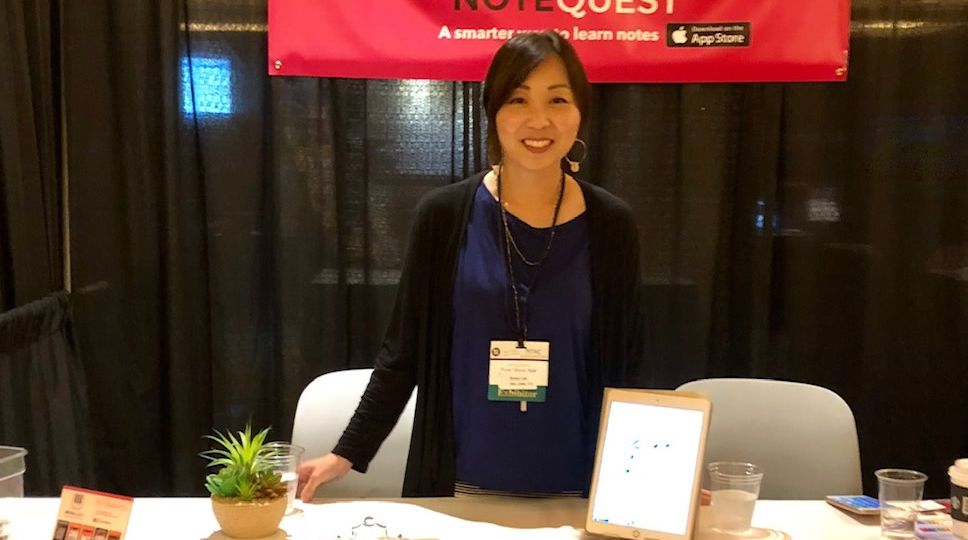
Learn Music Fast is the slogan of the highly acclaimed Note Quest app. Created by music educator and piano teacher Grace Lee, Note Quest makes ear training and music education fun.
Grace was kind enough to sit down for an interview. You’ll learn her inspiration, what it takes to make a music app, and even advice for those who want to improve their own ear training!
Can you tell us about Note Quest and your vision?
Note Quest is a flashcard app designed to boost music reading skills at the piano. It’s uniquely versatile: Play in Real Piano Mode with pitch detection, Virtual Piano (built-in 4-octave keyboard), or MIDI. The app gives immediate feedback with a scorecard and Multi-user Stats to track improvement. My hope is to catch beginning piano players at this sometimes frustrating stage and help them to become more fluid music readers. It’s a simple and affordable tool for music teachers as well as students’ practicing at home. Fundamentally, there is much more to music than reading notes, but I feel that being able to read music is an empowering skill that anyone can learn.
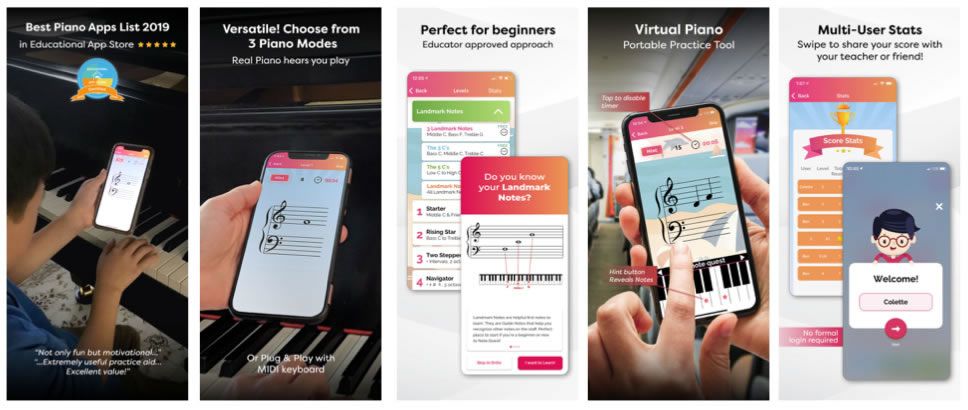
What were some of the challenges along the way?
Having no previous experience in app development, the learning curve for me was super steep. This project has involved wearing more hats than I ever had – I’m the Project Manager and “Chief Organizer,” handling development, design, and marketing, while maintaining a teaching schedule 4 days a week (until recently). Being relentlessly organized is essential when you’re managing an app as a solo owner; sometimes, it feels like I’m solving three 1,000-piece puzzles at the same time. In general, I think I experienced more setbacks than victories, but I hear that is normal. Even though I have some marketing experience, pushing out the development side while doing marketing is always a bit of a tightrope. I think this balancing act has challenged me to be a better project manager.
Do you have any advice for people looking to make an educational app?
Get as much feedback as possible. Watch people use your app without any guidance and the truth will come out. Take good notes. Foster positive connections and relationships with influencers in the educational community and think first about what you can offer them. The cool thing about the education and music space is that most people really want to help, and fortunately, I’ve found that most of them are in this business for the greater good. I love that.
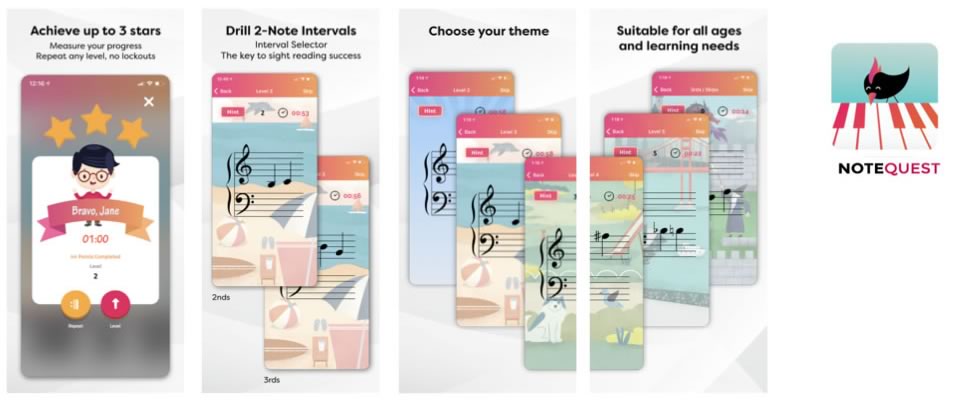 What advice do you have for someone that wants to improve their ear training?
What advice do you have for someone that wants to improve their ear training?
Developing the ear is everything for a musician. It’s even a great skill for non-musicians because it deepens their ability to engage with live music in any setting. More specifically, intervals (the distance between pitches) are the building blocks of all music. Once you’re fluent with interval recognition, you can read music better, sing better, transpose, or do just about anything better, I’m convinced! I’m hoping to build out some ear training games I have in mind. So many ideas, so little time!
What inspired you to make a music education app?
It started as a problem-solving idea. Having taught piano for over 20 years with double degrees in music, I’ve used many written materials and flashcard packs for students – which inevitably got damaged, forgotten, or yup, “eaten by dogs.” With so many students going through the same struggle, I thought there must be a better solution without compromising educational value. As a mom of two kids, I saw a specific need and was dissatisfied with the few choices that were out there. This is how Note Quest was born.
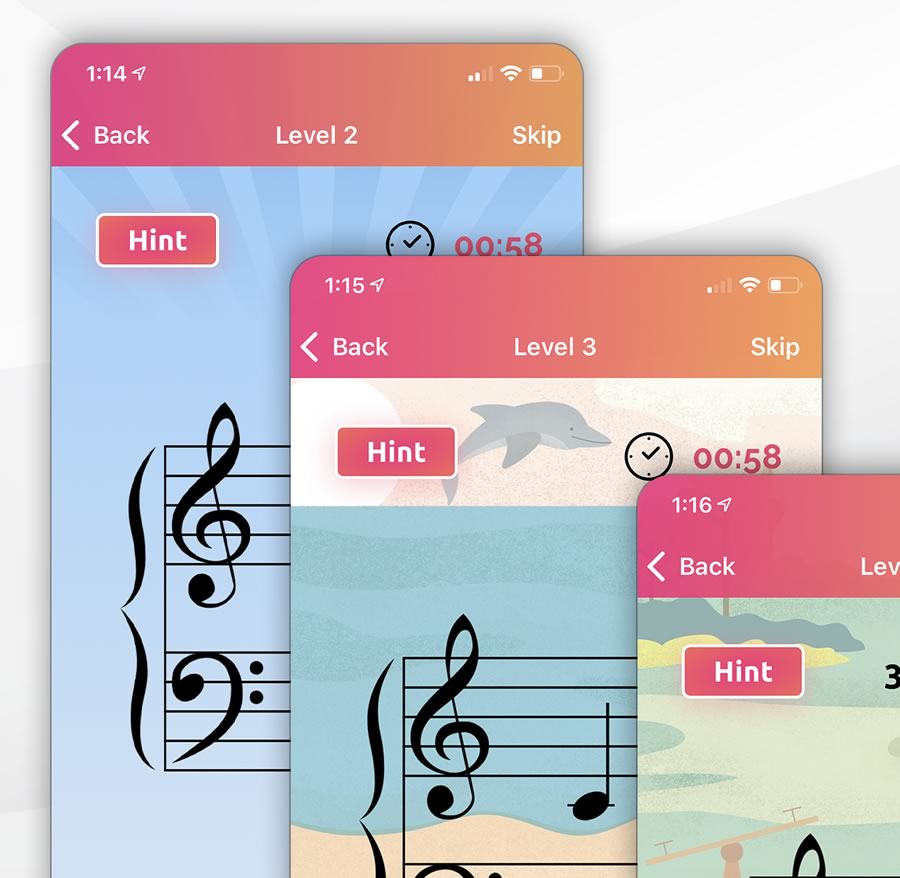
Why did you decide to use AudioKit?
During my research phase before I wireframed the app, I found that most pitch detection libraries were way above my budget tolerance since I’ve been on an “indie developer” budget. I couldn’t believe that such a niche pitch detection library was being offered open-source, so we implemented it and have never looked back. Then, adding MIDI functionality using Audiokit’s MIDI libraries have been a huge boost for the app, so students can practice using their keyboards at home, and piano lab teachers are using it in group settings. After my MVP was released, I fortunately got connected with a couple of people in the Audiokit world, who have been an amazing source of support.
Do you have any success stories that you’d like to share?
I had an 11 year old student named Liam last year who came to me as a beginner. He was a bright kid who was eager to learn piano quickly. On top of his assigned pieces, he practiced with the app at home pretty consistently. It was fun to see him aim to beat his own Stats from one week to the next! He picked up note reading very quickly and just months later, began to enjoy pieces that sounded more impressive than he could even believe!
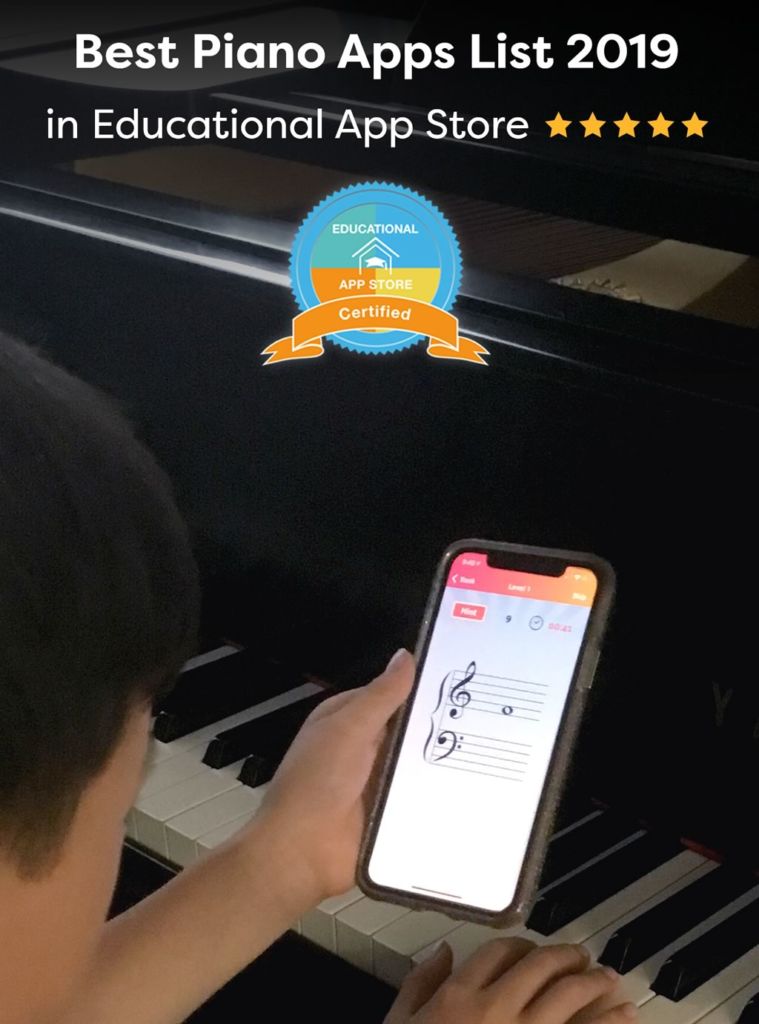
The Educational App Store recently recognized Note Quest as a certified app –
Featured on their Best Kids Music Apps List.
What’s next for Note Quest?
It’s still in the formative stages of development, and I constantly see the potential to make it better. The app currently has several preset levels of play, but we’re working on a Note Customizer, so you can choose exactly the pitches you want to practice! This is especially useful for other instruments which have their own range. Last year, we added multi-user Stats which allows users to track and share their scores from the app.
So far, it’s a standalone niche app that does its thing, but I’d love to explore partnerships or team up with like-minded folks. I’d love to collaborate. If interested, email me.
Great job Grace!
Learn more about Note Quest:
Note Quest


